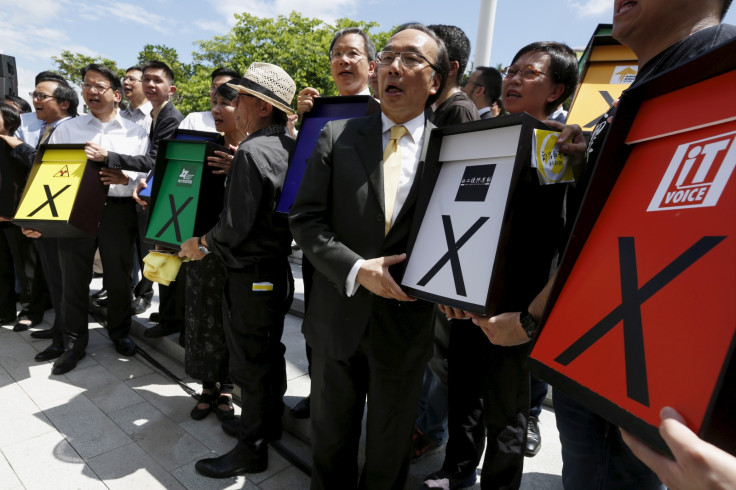China stands firmly behind Hong Kong's rejected electoral reform motion

China has said that its decision on Hong Kong's electoral reforms in August last year will remain in force in the future, even after the Hong Kong Legislative Council's decision to veto the reform on 18 June.
Under the proposal, the more than three million registered voters in Hong Kong would be able to vote for their next leader in 2017, but only under a strict framework drawn up by China, which includes a vetting process for candidates by Beijing.
China describes the electoral reform motion as the "universal suffrage" motion" but critics have tagged it as a 'fake democracy,' as they believe only pro-China candidates would be selected.
"Although the universal suffrage motion was not passed at the [Hong Kong] Legislative Council, the direction towards universal suffrage and the legal principles laid down in the decision of the National People's Congress (NPC) Standing Committee, must continue to be upheld in future efforts to pursue universal suffrage," a statement from the office of the NPC Standing Committee said.
"The decision shall continue to serve as the constitutional ground for Hong Kong in the future as it enforces universal suffrage in the chief executive election, and its legal force is unquestionable," it added.
A spokesman for the NPC, China's top legislative body, said a few Hong Kong lawmakers remained "stubbornly opposed" to the central government", Reuters reported.
"It fully exposes their selfish interests, hinders Hong Kong's democratic development and damages the essence of Hong Kong's prosperity and stability, " the spokesman said.
After a nine-hour debate, Hong Kong lawmakers rejected on 18 June an electoral reform plan for the selection of the Special Administrative Region's next chief executive in 2017.
According to the NPC, the motion has to be endorsed by at least two-thirds of all the 70 Hong Kong lawmakers.
The motion states that candidates for the role of chief executive will be vetted by a 1,200 strong committee comprising representatives from different economic, political and social sectors. The committee may support multiple candidates and will recommend and nominate two or three candidates.
Candidates who secure the support of at least half of the nominating committee will then be put forward to Hong Kong registered voters, according to China Daily.
A spokesman for the State council's Hong Kong and Macau Affairs Office said: "Such a result is a departure from the mainstream public opinion of Hong Kong. It is also not what the central government likes to see."
The spokesman also criticised the pan-democrats and said they should be held responsible for denying Hong Kong's people the change to elect their leader, reports the South China Morning Post.
© Copyright IBTimes 2024. All rights reserved.






